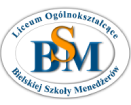- To strengthen international potential and European dimension.
- To celebrate important days for the European Union (Europe Day - 9 May, European Day of Languages - 26 September).
- To exchange good practices and experiences on educating on ecological and social aspects of sustainability.
- To prepare teachers to educate a new generation able to drive change and ready to make a difference.
- To prepare the 'MAI Guide to Teaching Sustainability', which will advocate the comprehensive incorporation of ecological and citizenship issues into various subjects, and implement its guidelines.
- To help students connect with the natural environment through field trips combined with voluntary eco-activities, observing and appreciating, creating NATURE SPOTS (small indoor gardens), e-twinning tasks.
- To raise awareness of the climate emergency - lessons of biology, chemistry, geography - research into weather threats that may occur in the regions of partner schools - creating an EMERGENCY PREPAREDNESS leaflet in local languages to be distributed in the communities.
- To teach students team-building, problem-solving, and leadership skills to empower them and lead them from awareness to action.
- To promote active citizenship by teaching common European values, the necessity of charity work, political activism on national and local scales, but also through encounters with activists, politicians, and decision-makers.
- To promote respect in peer groups and inclusion of everyone, to develop empathy for students with handicaps, and to advocate the idea of tolerance through talks, presentations, mutual contacts with partners, and working in mixed-ability groups.
- To develop empathy for the older generation through the 'adopt an older neighbor' scheme.
- To use English in real-life contexts to develop better communication skills - the aim is to raise average A2+ communicative competence to B1 and above (CEFR).
- To increase the usage of ICT, e.g., Kahoot quizzes, digital democratic tools.
- To introduce e-twinning and use it for the development of project products.


